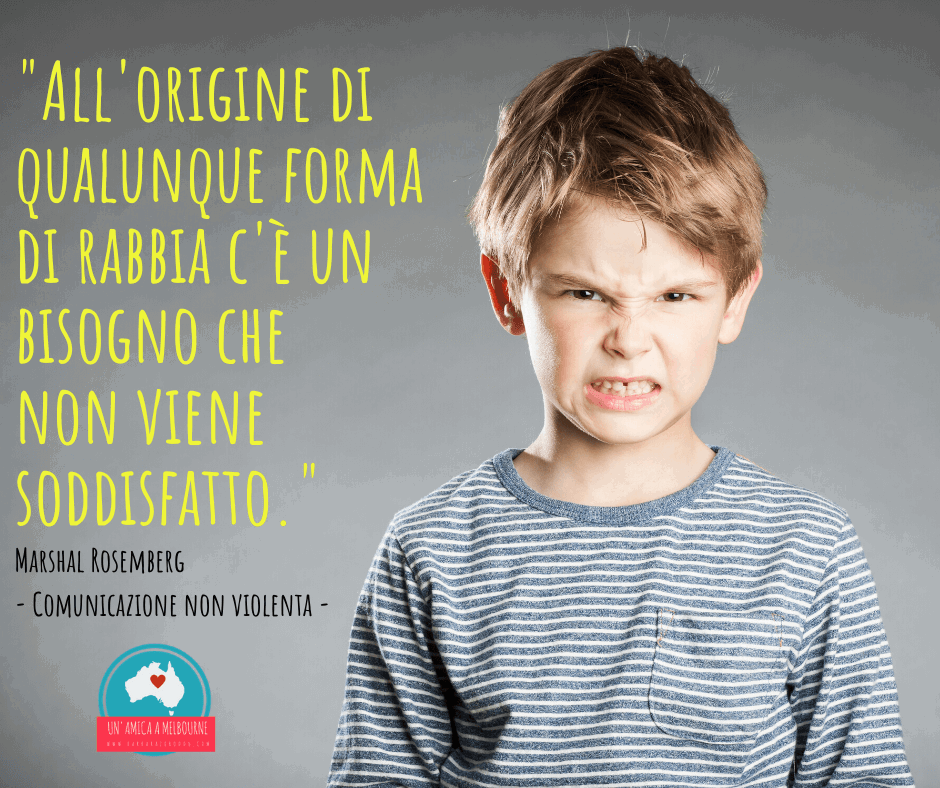Anger and Needs

Once we are aware of what is alive in us, then and only then can we do something to make our life richer and fuller. But what are we referring to when we talk about "what is alive in us"? Under the layers of the masks we wear, under the violence of words and sometimes of our reactions, there is a deeper meaning, a truth. According to the principles of non-violent communication (NVC) by Marshal Rosemberg "What is alive (in a person) is basically two things: what the person feels and how his feelings are related to his needs." At all times we have needs, needs that ask to be satisfied. When these needs are not met, the conditions are created for imbalance, for unhappiness, for conflict. The conflict can be internal or it can occur in the relationship with the other. So it happens that from an early age we learn to express with anger that feeling of dissatisfaction that comes from one of our unmet needs. So it happens that we mistake the stimulus for the cause, we think that someone makes us angry, that a certain situation makes us react. But the reality is different. Not being in touch with what we really need to achieve, we build in our mind a language made up of assumptions, of judgments. We blame others for wanting to take away, limit, judge. We look outside ourselves for the reason why we are experiencing that bad emotion that we do not want to feel or that we cannot dominate. This is what we react to. To the violence we think we suffer. We hardly refrain from attributing a meaning filtered through our lenses to the actions of others. If we could ask ourselves even for just a moment: what really bothers me about that person or situation? Surely only very few of us would be able to say this without simultaneously expressing a judgment. For example, we would say “it bothers me that it's always selfish” instead of describing the situation as it turned out. What did that person do? Am I able to say this without evaluating while doing it? We would probably realize that limiting ourselves to this is very difficult. However, if we could take a second and ask ourselves: What prompted a response of anger or annoyance in me? What kind of evaluation did I make of what happened? Because what happened is certainly the stimulus but not the cause. When that person does that certain thing let us pause to observe the quality of our thoughts. We will quickly verify that our mind will first have labeled that situation, judging it. Then the reaction will come. What would happen if we could grasp our reaction and look at it with curiosity and interest? What would we discover if we could allow ourselves the luxury of not reacting to that stimulus automatically but asking ourselves what's underneath? Anger and violence are layers that protect others. What our need is not satisfied by the situations / relationships we live in? What burns under the ashes that is good to see? Awareness is the foundation of a free and connected life. A life that speaks a language that is fundamentally that of feelings and needs. In every moment of life we have needs that need to be listened to and satisfied. Our feelings essentially depend on this. Our emotions are operating lights, they show us where to look to understand what is really wrong.
Comments